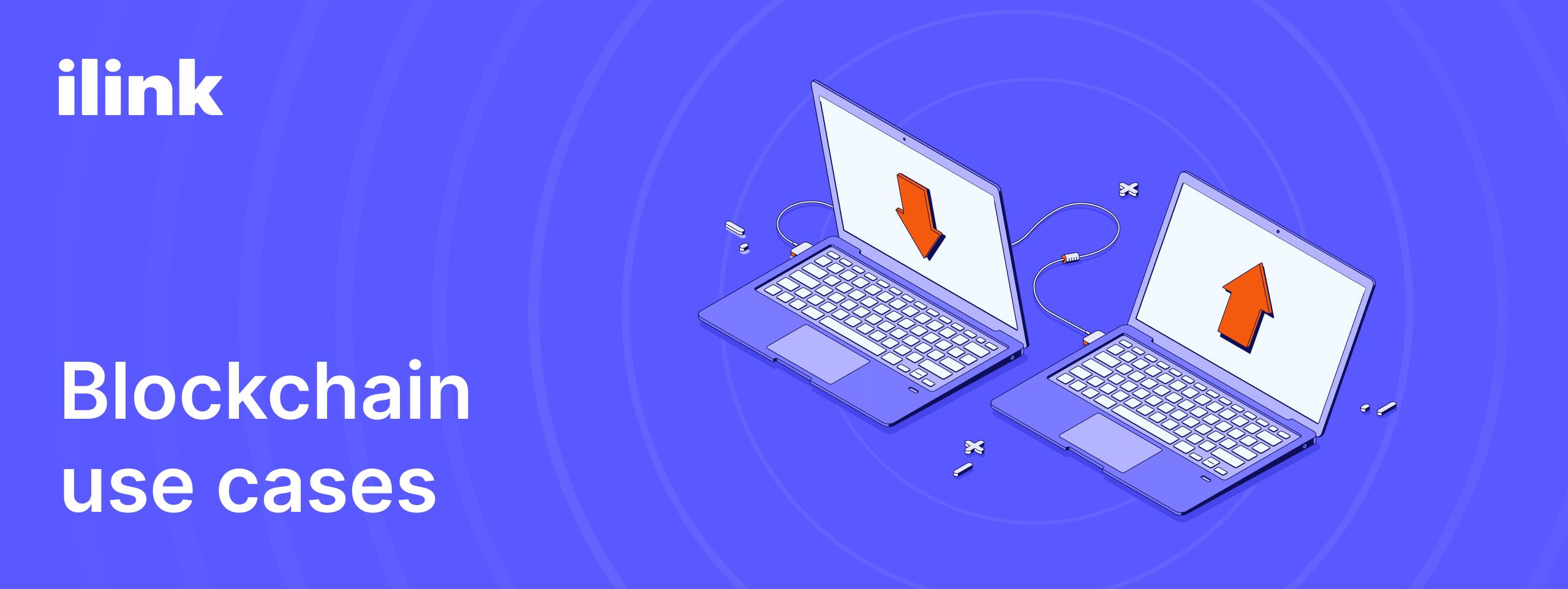The Main Reasons Why Your Business Needs Blockchain Technology
Blockchain Technology for Increase the Efficiency and Security of Data Storage
Blockchain technology has reconstructed the way we think about industrial growth and high quality data management. By enabling secure and efficient data transfer, blockchain technology allows businesses to drive growth and increase their competitiveness in the marketplace. Furthermore, due to its ability to ensure the highest level of data quality and accuracy, blockchain is quickly becoming a go-to solution for industries that rely on precise data.
How blockchain works. Using cryptographic methods, the system operates as a distributed database. Blocks in the chain are unique and contain specific information. The integrity and continuity of the chain are ensured by a hash code. Data is stored and processed on various network nodes due to blockchain's decentralized nature, eliminating the need for a central database.
In order to fully comprehend blockchain technology, it is essential that you become familiar with several key terms.
- A hash code is a unique string of characters that identifies a specific block of information.
- Cryptography, the science of information security techniques, employs mathematical algorithms to encrypt data.
- A node is a computer or server that connects to the blockchain network. Every full node has a copy of the entire blockchain.
- Additionally, smart contracts are computer protocols that enable automated execution of agreements without intermediaries, protected by cryptographic methods.
Let's see what opportunities blockchain provides to businesses and startups.
Benefits of Using Blockchain in Business
Businesses and startups seeking reliable and secure data management solutions can benefit from the use of blockchain technology. Here are some reasons your business needs blockchain solutions:
-
Blockchain provides security. Among the most significant benefits of blockchain technology is the security and reliability of data, which is protected by cryptographic methods during storage and transmission. By utilizing a corporate blockchain, it can also be configured to keep data private and protect sensitive corporate information. A limited number of participants are allowed access to this private blockchain network, making it less vulnerable to unauthorized access.
-
Transparency. It is possible to create open and transparent systems using blockchain technology by allowing any participant to verify the necessary information, therefore ensuring that the data is accurate and cannot be altered in any way.
-
Cutting costs. Blockchain technology can also reduce costs by eliminating intermediaries such as banks, lawyers, and real estate agents. Through the reduction of intermediaries, many business transactions can be completed at a lower cost and with lower commissions. By using encryption and a distributed verification system, it can also reduce the cost of authentication and data security, making it more cost-effective to control financial transactions and quality assurance.
-
New funding opportunities. Startups can benefit significantly from blockchain technology by accessing new funding opportunities such as Initial Coin Offerings (ICO), Initial Dex Offerings (IDO), and Initial Exchange Offerings(IEO). Through ICOs, startups can create and sell their own digital tokens or cryptocurrencies to raise investment directly from investors without the middlemen of banks and venture capitalists.
ilink develops custom blockchain solutions that contribute to the development of your business and maintain competitiveness in the digital market.
Many startups are developing various use cases for blockchain, along with the Internet of Things. One of the main goals of these cases is to connect home devices to the cloud. Blockchain technology leads to the independence of IoT devices by recording data exchanges between devices, applications, and users in a distributed ledger.
Application of Blockchain in Business by Industry

The possibilities of the technologies are endless, so they can be used in almost any industry.
Finance is the first industry we will talk about. Operations using blockchain technology lead to lower transaction processing costs, as well as increased efficiency and security of transactions. Increasing technological advancements will lead to a greater change in the way financial services are provided.
Logistics is another industry that can benefit from blockchain's ability to increase transparency. Blockchain technology reduces the risk of fraud and counterfeiting by tracking the flow of goods and raw materials throughout the supply chain.
The technologies verify identity by creating digital identifiers that include photographs, biometrics, and identification documents. In order to prevent fraud and forgery, a chain of authenticity would verify the information has not been altered.
Real estate transactions can be simplified through the use of blockchain technology. The elimination of intermediaries can help reduce the risk of fraud. For a sales contract, you can use a smart contract instead of a traditional contract. And the technologies automate processes such as rent payments and maintenance and repair management.
In healthcare, blockchain can ensure the integrity of patient medical records. The blockchain format stores a patient's medical history, lab results, information about medications, and other medical information.
Last but not least, blockchain can be used to develop trusted voting systems, which will ensure that the voting process is transparent and uncorrupted. By doing so, citizens would be more likely to trust elections and the quality of democratic processes would be improved.
Advantages of Utilizing Blockchain Technology for Your Customers
As for the potential benefits of blockchain technology for customers, they may vary depending on the specific industry and use case, but there are several that deserve mention:
A potential benefit of blockchain technology is its ability to authenticate products by assigning a unique identifier to each item and maintaining a record of its production and transportation history. As a result, customers are able to verify the authenticity of a product in a secure and reliable manner, thereby protecting them from fraudulent transactions and ensuring that their purchases are genuine.
Additionally, blockchain-based warranty management offers merchants a more efficient and transparent process. The blockchain records warranty information when a customer purchases a product. If the customer needs to make a warranty claim, they can do so easily through the blockchain, which allows them to track, maintain, transfer, and claim their warranty. The manufacturer can then verify the claim, process the warranty, and notify the customer. By using this method, customers are able to manage their warranties in a streamlined and reliable manner.
As a blockchain development agency ilink develops blockchain solutions that can help your company in many ways:
Consulting and Strategy. The ilink team will assist you in understanding the potential applications of blockchain technology in your industry and in developing a strategy for successful adoption of this technology.
Custom Blockchain Development. ilink specialists develop custom blockchain solutions for your business. Then they tailor them to your business needs and integrate them with existing processes for a smooth transition.
Smart contract development. The ilink team will develop and implement self-executing contracts that can automate certain business processes and reduce the need for manual intervention.
Blockchain application development services involve developing software applications that utilize blockchain technology to ensure transactions that are secure, transparent, and decentralized. There are many companies from small startups to large enterprise-level firms that offer blockchain app development services.
ilink provides your organization with the experience and support you need to successfully implement and use blockchain technology, helping you achieve greater efficiency, security, and innovation in your operations.
FAQ about Blockchain in Business
How can small businesses benefit from blockchain?
Blockchain provides small businesses with a plethora of specific advantages. In supply chain management, businesses sourcing materials or products can use blockchain to authenticate each phase of a product's journey. Consider a local coffee brand verifying the sustainable sourcing of its beans or a boutique ensuring the ethical mining of its gemstones. Then there are smart contracts, which are self-executing with terms of agreement directly embedded into lines of code. This can be invaluable for a small event organizer, ensuring vendors are automatically compensated once services are rendered, minimizing disputes. Furthermore, blockchain presents a fortified method for businesses demanding customer verification compared to conventional online procedures, significantly reducing identity theft risks.
How does blockchain help startups?
Blockchain technology offers startups unique advantages for growth and efficiency. For example, startups can use blockchain for supply chain verification to authenticate each stage of a product's journey. Startups in fintech can facilitate cheaper, faster cross-border payments. Companies requiring secure identity verification can use blockchain to minimize the risk of fraud. Customer loyalty programs can also be made more transparent and tamper-proof.
How can blockchain help entrepreneurs?
Here are some popular examples of how entrepreneurs can secure themselves with decentralized technology:
Decentralized Finance (DeFi): An entrepreneur looking to raise capital for a new venture might traditionally rely on banks or venture capitalists. With blockchain, they can tap into DeFi platforms to secure peer-to-peer loans or launch a token sale, democratizing access to funds and reducing dependency on traditional financial intermediaries.
Intellectual Property Protection: An entrepreneur in the creative domain, say, developing new software or creating original content, can use blockchain to timestamp and register their creations. This ensures their work is immutably recorded, providing a robust defense against copyright infringements and unauthorized reproductions.
How does blockchain solve business problems?
Let's take a concrete example of the problem to make it easier to understand.
Problem: Seafood fraud and mislabeling is rampant. Many restaurants and supermarkets unknowingly sell fish that is not what the label claims it is, leading to consumer distrust. Additionally, concerns about overfishing and illegal fishing practices harm the ecosystem.
Blockchain Solution: A blockchain-based traceability system is implemented. Every time a fish is caught, details like location, time, catch method, and species are recorded on the blockchain. As the fish moves from the fisherman to processors, distributors, and finally to retailers, each step is recorded immutably on the blockchain.
Outcome: Consumers can scan a QR code on their seafood purchase and see the entire history of that product, ensuring it's what the label claims and that it was sourced responsibly. The transparent and immutable nature of blockchain provides confidence in the authenticity and sustainability of their purchase.
How will blockchain change business?
Blockchain will usher in a new era of decentralized and transparent operations in business, revolutionizing trust dynamics. Its immutable ledgers will ensure that transactions remain secure and unalterable, reducing the scope for fraud and discrepancies. Smart contracts will automate various processes, minimizing human error and speeding up execution. Removing intermediaries will cut costs and inefficiencies, streamlining international transactions. Tokenization will reshape the way assets and value are perceived, enabling fractionalized ownership and democratizing access. Enhanced data privacy and user control over personal information will redefine consumer-business relationships, prioritizing user trust and autonomy. Through these shifts, blockchain promises to redefine the foundational principles of commerce and transactions in the modern world.
Comments (1)
Latest Posts
Learn how AURI, the automated AI call center, transforms business communication. Natural dialogue, CRM integration, omnichannel support, rapid deployment, and enterprise-grade security in one intelligent solution.
Learn how to build an online casino that scales: games, payment options, compliance basics, risk controls, and operational automation for growth.
Do you have any questions?
Leave your details - we will contact you to answer all your questions




